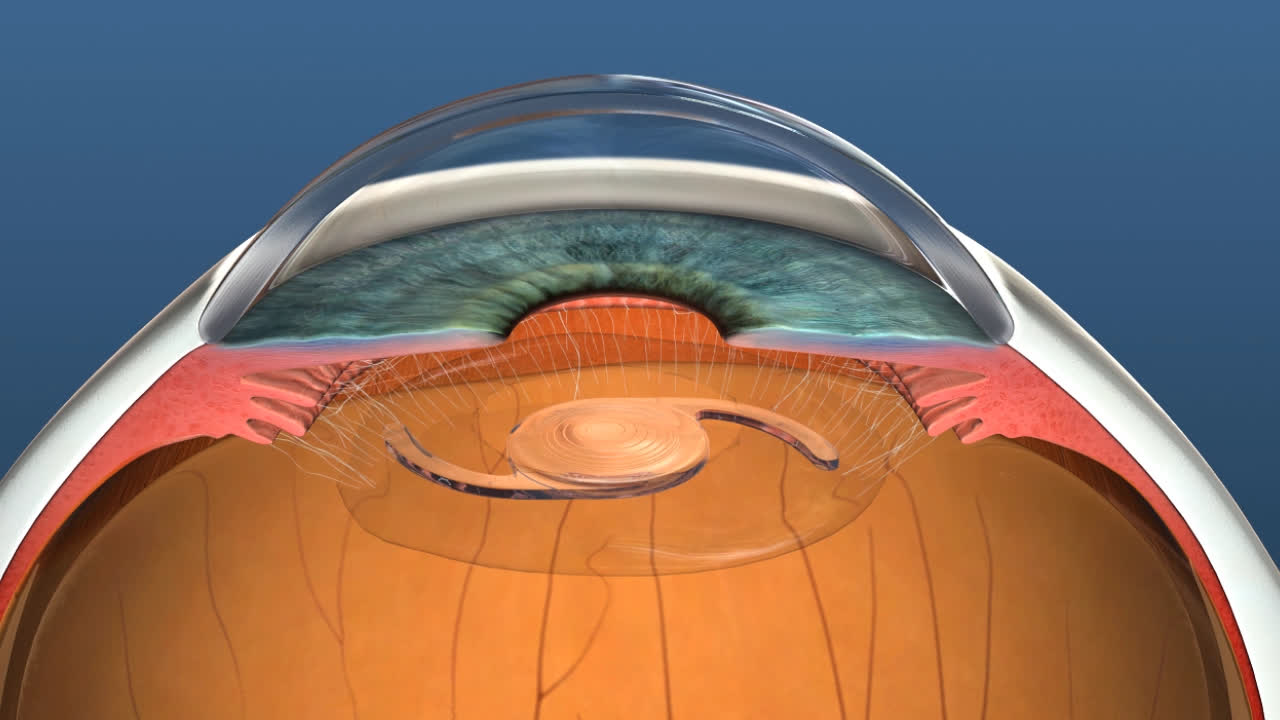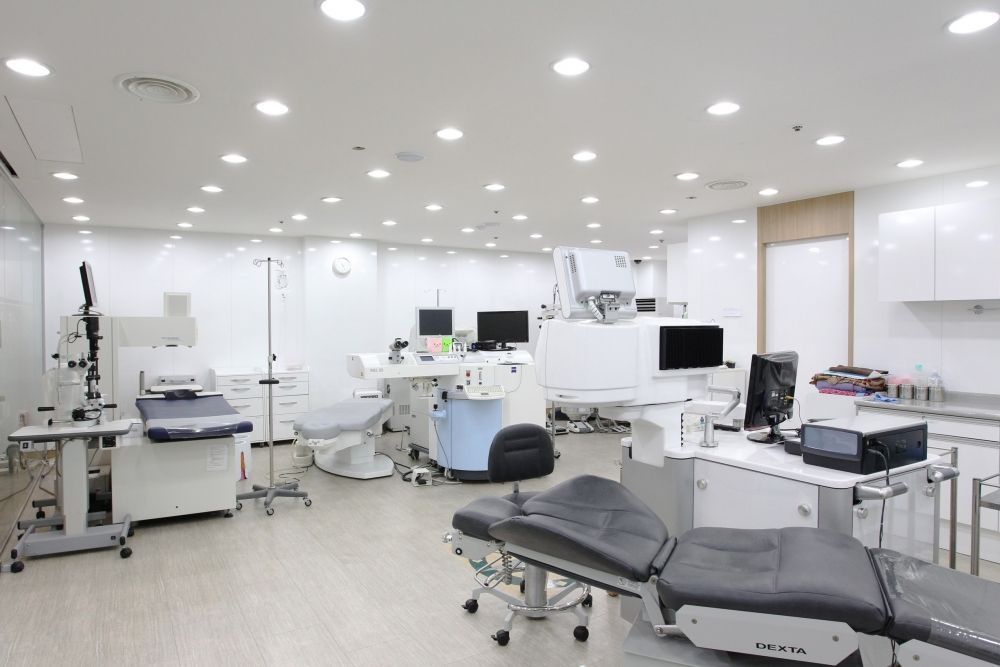Replacement of the poorly functioning natural lens with a high performance lens implant can result in complete spectacle independence!
Lens Implant / Replacement
Lens Implant / Replacement involves replacement of the natural lens inside the eye with a high-performance lens implant. Trifocal lenses and “Extended Depth of Focus” (EDOF) lenses can reliably provide independence from distance, intermediate and near vision glasses.
Behind the pupil in the eye is a lens that is used for fine focusing. With advancing age, the lens becomes harder and stops moving, which results in the need for reading glasses. With time the same lens becomes cloudy and eventually affects the ability to see, this is then called a cataract. Lens replacement is similar to cataract surgery in that the dysfunctional lens is removed and replaced with a sophisticated intra-ocular lens implant measured specifically to suit each eye.

Suitability for Lens Replacement
Generally those who are over the age of 50 who have any level of hyperopia (far sight) and 55 with any level of myopia (short sight) and astigmatism. Those who have cataracts may also be suitable for high performance trifocal lenses. To be suitable for premium lenses, eye health has to be good with no identified problems that can affect lens performance. Those with macular degeneration or visual field loss from glaucoma for instance will not be suitable for a premium lens.
Safety is Paramount
At the Blackrock Clinic we are very selective about those who are eligible. Safety is our number one priority and we make our decisions based on scientific evidence, declining those who might be at increased risk.

Premium Lenses
Extended depth of focus and trifocal lenses are the most commonly used lenses at Blackrock Clinic. Suitability for the lens implant is determined at consultation when numerous tests including the optical properties of the cornea and tear film are evaluated. To work well, these high performance lenses require a cornea with good optical properties as well a surface free of dryness and no streaky tear film. Expectations of how the lens performs will be provided during consultation. Patients must understand the concept of adaptation which involves the brain becoming accustomed to the new optical system and picking up new information. The lens has microscopic rings which provide near vision and as a consequence patients may well experience transient halos that disappear with adaptation.
The Consultation
At Blackrock Clinic a thorough preoperative consultation will be conducted by the surgeon who will carry out your procedure. The surgeon is supported by a team of highly trained technicians who perform a minimum set of investigations and measurements.
Based on initial findings, additional investigations may be required to further evaluate the eyes as necessary. During the process, the technicians and optometrists are in constant contact with and directed by the Ophthalmic Consultant. Once this has been accomplished the patient will be seen and counselled by the Consultant.
Frequently Asked Questions
Yes, but it may restrict the range of lenses available to you. We will need more information to find the most suitable option for you before booking consultation.
The procedure does not stop one from developing eye problems or increase the risk of eye problems. Glaucoma and age-related macular degeneration can still occur and for this reason it is important to be regularly monitored by an eye care practitioner such as a local Optometrist. It is best to continue a relationship with your current Optometrist and maintain continuity of care and also contact us at Blackrock Clinic if there are ever any concerns.
This is highly variable. Some patients obtain good vision within 24 hours and others may take a little longer. Much depends on each individual’s response to healing. If you have had a Premium Lens implanted, there may well be a period of adaptation before you are able to see well at near.
Usually two to three days. You may return to work as soon as you are comfortable. Make sure you are able to take your eye drops regularly as instructed by your surgeon.
When your vision is clear and you are comfortable. You must be able to read a number plate at 25 meters. Your doctor will advise you if you meet the visual standards for driving.
You may return to all sporting activity after two weeks. For contact sports, you are advised to use protective eye glasses. Polycarbonate sports glasses are recommended. For swimming, usually after 4 weeks. There are no restrictions and you may return to general activities like housework, shopping and gardening the following day. You must keep away from smoky and dusty environments and do not forget to wash your hands before using your eye drops.
If you have any further questions, please do not hesitate to contact us at the clinic.